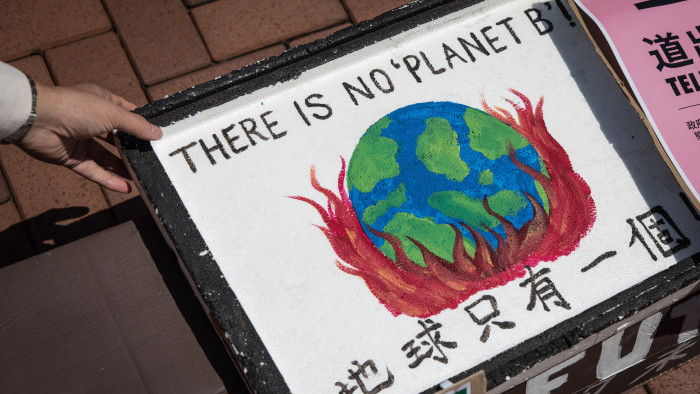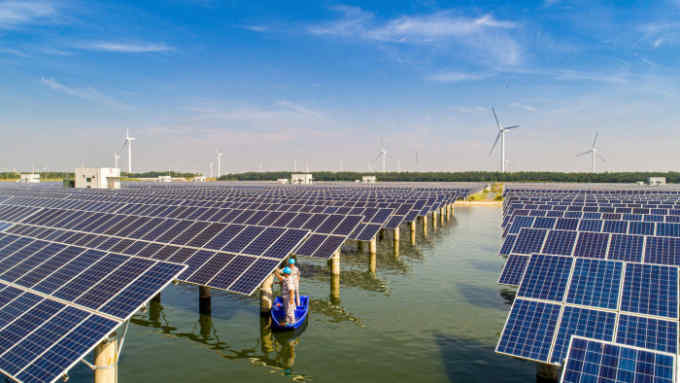China’s Belt and Road urged to take green route

Roula Khalaf, Editor of the FT, selects her favourite stories in this weekly newsletter.
In April, 260 environmental organisations sent an unusual request to China’s finance minister: do not bail out 60 Chinese-backed overseas projects suffering from Covid-19’s economic fallout.
The list ranged from coal-fired power plants in Turkey to palm oil plantations in Cameroon, all part of China’s Belt and Road Initiative (BRI) to fund and build infrastructure across Eurasia and beyond.
Countries along the route have been calling for debt relief from Beijing in the wake of the global pandemic, but the listed projects should be excluded, due to their environmental, social, or climate risks, wrote the coalition of local civil society organisations and international groups including Friends of Nature.
Calls for China’s BRI to shift away from funding polluting infrastructure is fast becoming one of the greatest obstacles to President Xi Jinping’s signature foreign policy programme.
Environmentalists argue that the emphasis on fossil fuels is not just dangerous for climate change and local ecology, it is also a bad bet financially, as renewables such as solar and wind become cheaper and more popular.
Between 2000 and 2019, Beijing’s two leading policy banks — China Development Bank and Export-Import Bank of China — provided $183bn in energy finance to BRI countries, which went mostly to oil, coal and hydropower. This compares with the banks’ $4.8bn funding for solar and wind projects, according to data from Boston University’s Global Development Policy Center.
That imbalance has been highlighted by climate economists, who say the BRI will play a make-or-break role in meeting global targets for reducing carbon dioxide emissions.
A failure to improve environmental standards in 126 BRI-participating countries could push global temperatures up 2.7C, even if all other countries met their targets to reduce emissions, according to a report by Beijing-based Tsinghua Center for Finance and Development, consultancy Vivid Economics and the ClimateWorks Foundation, a non-profit.
Polluting projects also face mounting financial and political risks from lawsuits and protests by local activists groups, as well as forecasting failures that have seen some nations overestimate their need for fossil fuel-powered energy production.
In a landmark case last June, a court in Kenya ruled on environmental grounds to halt construction of the country’s first coal-fired power station — a $2bn project that had been recognised by China as part of the BRI.
Faced with mounting concerns over viability and an economic slowdown at home, China’s overseas energy investments dipped in 2019. Policy banks signed off on three new loans for energy projects worth $3.2bn — the lowest level since 2008.
China has increasingly encouraged both international and Chinese commercial banks to finance BRI projects, and green financing initiatives have been launched in an attempt to push financial institutions towards backing low-carbon projects.
As part of this effort, the Singapore branch of the Industrial and Commercial Bank of China issued the first green Belt & Road Interbank bond in April last year, worth $2.2bn.
But a lack of unified green financing standards is holding back such efforts, according to a report by law firm Baker McKenzie in late 2019.
“Until Beijing aligns its principles guiding its environment investments abroad with global standards, it will continue to face international criticism about its lack of sustainable growth and investment strategies,” the report said.
Experts also note that Beijing has yet to take policy steps that would make the BRI more environmentally sustainable, such as mandating environmental impact assessments for Chinese companies’ overseas investments — such checks are currently only required within the country.
Han Chen, a Zurich-based researcher at the Natural Resources Defense Council, says that an overall shift to cleaner investments in Belt and Road countries will require commitments both from China and from the host nations.
Countries must assess their need coal power when renewables might be cheaper, while Chinese institutions could become more transparent about their financing and their commitments to environmental sustainability, Ms Chen says.
“Three of Japan’s megabanks have said they are getting out of coal,” she adds. “We haven’t seen that kind of commitment from the Chinese institutions heavily involved in BRI.”
Additional reporting by Emma Zhou in Beijing

Comments